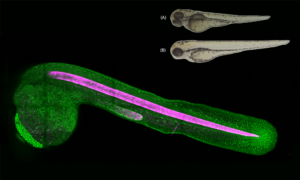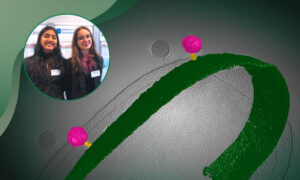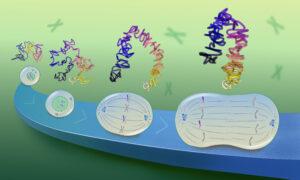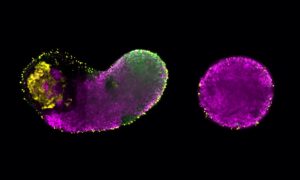
Capturing marine biodiversity
On 21 June 2014, researchers throughout the world began sampling the oceans in a push to capture the microbial biodiversity of marine surface water. The first Ocean Sampling Day took place at over 160 sites spanning Iceland, Antarctica, French Polynesia, the Americas and South Africa.
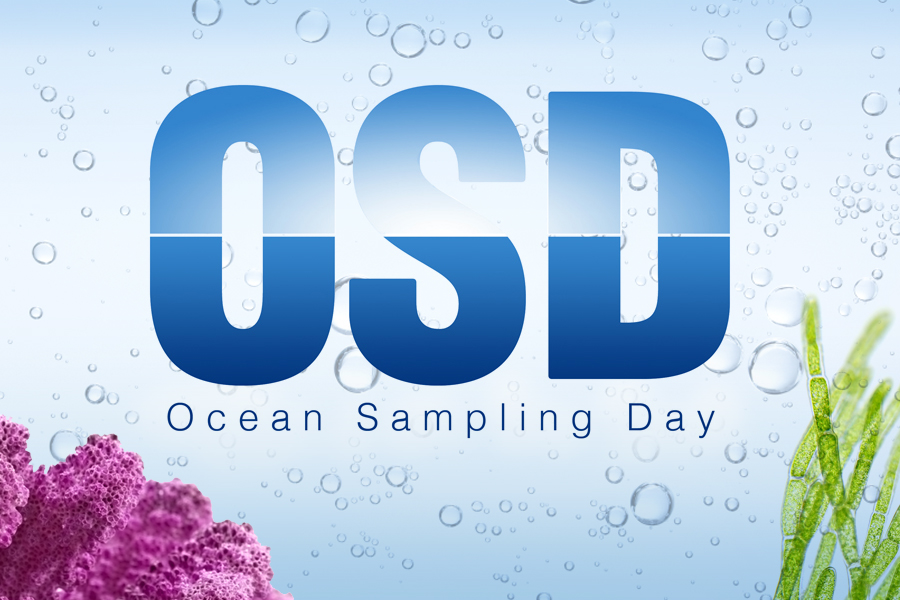
The data collected will be shared publicly via EMBL-EBI’s European Nucleotide Archive and Metagenomics Portal, environmental database PANGAEA, and European portals SeaDataNet and EurOBIS.
Because of the falling costs of DNA sequencing, marine scientists can now use this technology widely to understand the important but complex communities that make up ocean life. “Microbes may be small, but they sustain so many of our planet’s critical resources and harbour potentially useful compounds,” comments Guy Cochrane, who leads the European Nucleotide Archive at the European Bioinformatics Institute (EMBL-EBI).
Speaking the same language
Scientists working in Micro B3, the EU-funded project behind Ocean Sampling Day, have been finding new ways to integrate DNA sequencing, ecology and oceanography data and to apply these methods across the world’s oceans.
“One of the driving principles of this project is conation to collaborate and to share knowledge for a purpose that far exceeds borders of scientific domains and national territories,” says Petra ten Hoopen of EMBL-EBI, who coordinated the Micro B3 Standards team. “Oceanographers, molecular and ecosystem biologists, bioinformaticians, all had different ways of referring to the same information. We have learned a great deal how to efficiently work together and share information. Over 160 sampling stations worldwide agreed to follow a single sampling protocol in order to contribute to hitherto the biggest single-day snapshot of world’s oceans. Only in alliance we can catch a glimpse of the wealth and potential of the deep sea.”
MicroB3 has run pilot ocean sampling days to test-run standardised methods for sampling, shipping, sequencing, data transfer and analysis. Now that the bumps have been smoothed out, the project is ready to go.
A new era for marine research
“With more than 160 sampling sites worldwide, Ocean Sampling Day has exceeded our wildest dreams,” says Micro B3 coordinator Prof. Dr Frank-Oliver Glöckner of Jacobs University Bremen. “The resulting dataset marks the beginning of a new area of genome-enabled site-based marine research.”
The resulting dataset marks the beginning of a new area of genome-enabled site-based marine research
Rob Finn of EMBL-EBI adds, “Such large-scale projects are going to become increasingly common and are essential for understanding ecological systems. The data analysis procedures being developed for Ocean Sampling Day are driving the field forward – but it is clear that much remains to be discovered about the microbial world.”
“Ocean Sampling Day is the first simultaneous sampling of the world’s oceans at a significant scale,” says Prof Dawn Field of the NERC Centre for Ecology and Hydrology at Oxford University, who is leading Ocean Sampling Day. “It is a historical event – and hopefully it’s just the beginning and may continue in the future!”
Citizen science: MyOSD
Ocean Sampling Day encompasses a new citizen science initiative: MyOSD, which invites citizens to upload their own scientific measurements. These data will be used to support those deposited by the sampling scientists. The result of both efforts will be a common pool of data to be openly shared.
Anyone can be a citizen scientist and collect environmental data for Ocean Sampling Day! If you have access to marine or fresh water – even in your garden – you can send in your data. MicroB3 has developed an app for android smartphones and iPhones for everyone to use. You can find full instructions at www.my-osd.org.
Data sharing
Ocean Sampling Day is underpinned by clear data-sharing agreements, put in place to expedite the spread of new knowledge about our ecosystems and the sustainable use of marine genetic resources. Following DNA sequencing of the collected samples, bioinformatics will be used to identify species and unknown functional genes. The MicroB3 information system will integrate data from professional and citizen science sampling and make it publicly available in major databases, following quality controls. MicroB3 has developed Intellectual Property (IP) recommendations to address issues such as ownership of and access to the collected samples, data and analysis. Ocean Sampling Day will serve as a testing ground for their long-term applicability.
